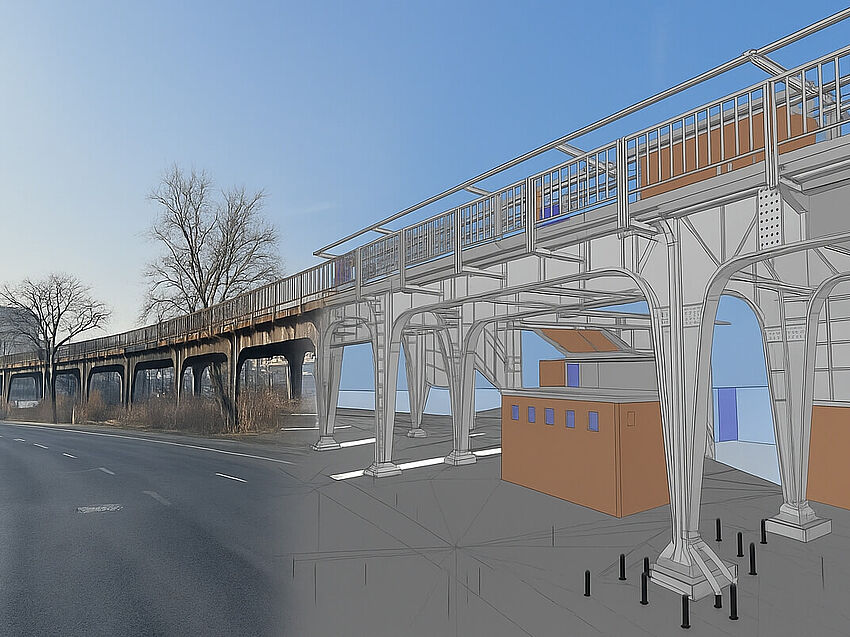Reactivation of the Siemensbahn: KREBS+KIEFER relies on ALLPLAN
On 23 June 2016, 51.9 % of the British people voted in a referendum for the United Kingdom to leave the European Union. After the surprising outcome of the vote there was much discussion about the consequences for Great Britain and Europe. There was broad agreement that the result would take its toll in virtually every area of the economy and politics.

In the months before the referendum sections of the British construction industry had spoken out publicly against Brexit on many occasions. They feared that it would become more difficult in future for British construction firms and planning offices to conclude contracts for European building projects. Developments in the first few weeks after the referendum proved them right: a wave of redundancies swept through London’s engineering offices, entire branches were closed down and various building projects in Europe with British involvement were halted temporarily. Consequently, all the more important for the British now will be their oft-praised pioneering role in Building Information Modeling (BIM).
BIM in the United Kingdom
Back in 2011, the British BIM ambitions were apparent in the “Government Construction Strategy 2011”. It set out that from 2016 the planning and construction of public buildings was only to take place using BIM. From January 2016 two of three BIM development stages ultimately became mandatory in the United Kingdom by law. At this time many other countries in Europe had not yet even reached development stage 1. The obligation to deal with the topic led to high BIM implementation.
To what extent has the planning method BIM really won through in practice? 11 facts about BIM in practice.
The major ambitions of the British in terms of BIM are also reflected in the “Level 3 Building Information Modeling - Strategic Plan” published in 2015. As the name suggests, this strategy paper pursues the implementation of the third and highest BIM development stage. This is also part of the latest strategy paper concerning the British budget: “Budget 2016”. Amongst others, listed as an objective is the assertion of the global leading role by the United Kingdom in digital building.

BIM as the answer to Brexit
Now the question is what effect Brexit will have on the British pioneering role and ultimately on BIM in Europe. The advanced development of BIM in Great Britain, whose active application and professional knowledge of the users still represent a unique feature for the industry and thus an opportunity on the European markets. Looking at the market situation today after the referendum, it seems only logical for the British to continue to forge ahead with BIM.
If the British wish to secure a stable position in the EU building sector as a non-EU member, their high level of BIM expertise will become an invaluable added value. For knowledge of the digital planning method will guarantee orders in Europe moving forward. If the British develop their construction sector to BIM development stage 3 the pressure on the rest of the European sector will increase, in following suit regarding development of BIM, which in turn would entail an upturn for BIM throughout Europe. In that sense, as far as BIM in Europe is concerned at least, Brexit would actually be considered as an opportunity.




